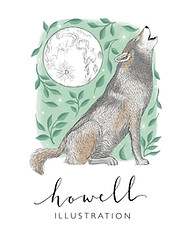The Creative Process: Part II
- Nicola Hawley
- May 18, 2021
- 3 min read
Over the past few weeks, I've been sharing processes and sneak peeks behind creating The Bird Book: A Curious Compendium of 50 Wild Birds, and last week I spent a good amount of time rambling specifically about the illustration process, in the hope that I can give a few people a glimpse into the illustrative world. I left off describing the process just as I'd sent the initial drawings to the publisher, so now, let's hear what they had to say and what went on for the rest of the drawings.

I'd finished 50 bird drawings in a very tight schedule of two months and sent them into the publisher, who loved them (yay!!). Then the publisher sent them to the authors. The authors don't always get a say in their illustrations, but in this case it was vital, because the rest of us weren't the experts, and I needed to be told if I'd got anything wrong. Sure enough, a list of changes came back, but thankfully they were just little changes. I only had to completely re-draw one bird, and to be honest, it looks better for it (I re-drew the green woodpecker). I received the comments back in a word document with, helpfully, some pictures of birds clearly showing the changes that needed to be made and where I'd strayed off the path. I don't know about you, but I find this easy to do as a little bit of artistic flare starts creeping in!

I made most of the edits, but what happens when you disagree with some changes? This will happen, because if there's anything I have learned, it's that your client has a different eye to you - you will almost never be completely on a par. Really, I think you've got to ask yourself: which edits can I just let go? Because I like an easy life (and if I can let go of my own ego), I find that it's all a lot simpler if you just make some of the changes, even if you disagree a bit (i.e. you compromise). However, if some are not quite right, then you do have to push back a little bit in the nicest way you know how, but try to go back with a firm note too, you are the artist, after all.
And I'll be honest, I'm not great at this yet, though I'm getting better. I let some changes go through that I shouldn't have done - and a couple I'm still really sad about making! Not great for someone with anxiety: because I can see the imperfections, I feel sick every time I think about it! Though I very much doubt many other people will notice. However, you definitely live and learn, so next time I'll know to trust myself on some things.
This happened a few times: a bit of back and forth between me and the authors and publishers, and there was a lot of confusion my end about what the term 'rufous shading' meant (it's reddish-brown shading found on certain birds). Until finally, we had the finished pieces. I also got to see Rob's finished design work (in low res), before it went off to print. I always get really nervous at this bit, (because I don't get to see the final high res file before it goes off to print), that I've got something wrong and thousands of books will print out in weird colours or slightly blurred. I have to check my settings a million times before I send them. Are there any other illustrators reading this out there? How do you cope with the anxiety of getting something wrong? Comment below!
So there we go, the full process of illustration behind this book - although each book is different, a lot of them follow the same format of back-and-forth and editing. Hopefully you enjoyed this peek behind the scenes of the process! And if you want to read part I, check out last Tuesday's post.
As always, thanks for reading.
Nx

Comments